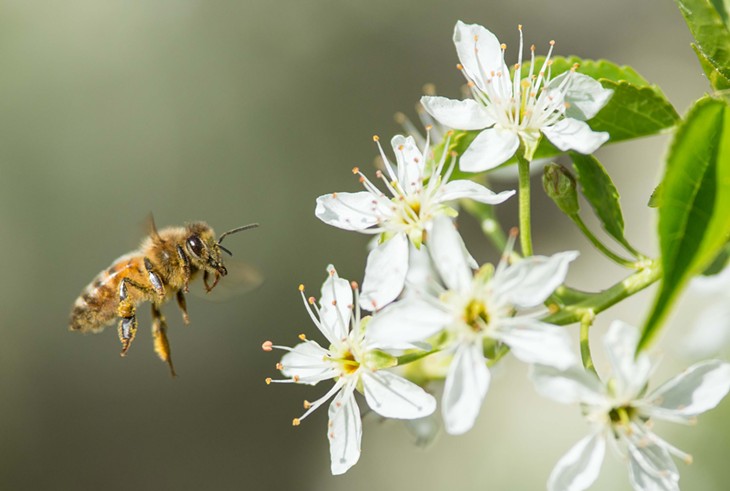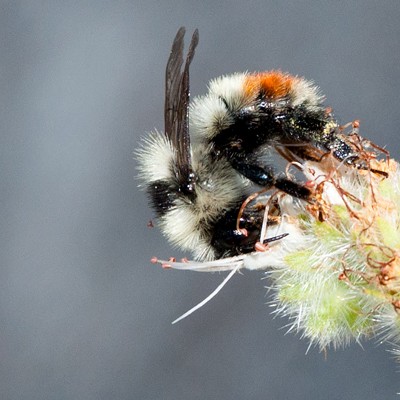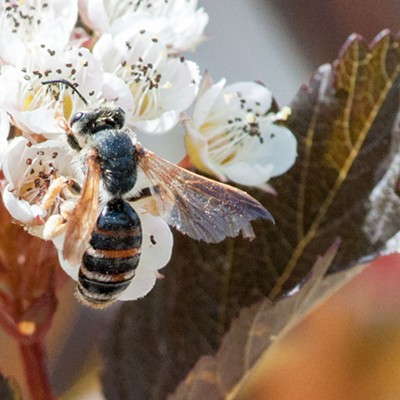Monday, June 16, 2014
Why the city council may ban a group of pesticides on city land
UPDATE #2: The city council voted 5-2 in favor of the ordinance banning the use of neonicotinoids by the city, excluding the parks department. Councilmen Mike Allen and Mike Fagan voted no, citing concerns that there was not enough definitive proof that the pesticides hurt honey bees.
UPDATE: In its afternoon briefing session, the Spokane City Council deferred voting on the neonicotinoids ordinance. Council President Ben Stuckart says he encouraged the deferral because Councilmember Candace Mumm, a member of the council's left-leaning majority, is out of town and the council's three conservatives haven't indicated which way they'll vote. "I didn't want to end up with a 3-3 vote," Stuckart says. The council will consider the ordinance next Monday at its 6 pm meeting.
There will undoubtedly be plenty of tripping over the word at tonight's city council meeting, but the discussion over neonicotinoids will still be a serious one.
The Spokane City Council will consider an ordinance banning the city's purchase and use of products containing neonicotinoids, a class of pesticides some studies have linked to colony collapse disorder among honey bees.
Colony collapse has long been a problem for which there is no clear cause. Neonicotinoids are among the latest suspected causes of harm to bees — an argument that was bolstered by this new Harvard study, which compared hives exposed to the pesticide to those not exposed and found that come winter, the hives exposed to neonicotinoids were empty.
"The absence of dead bees in the neonicotinoid-treated colonies is remarkable and consistent with CCD symptoms," the researchers write.
Just how the neonicotinoids are affecting the bees remains an unanswered question.
"It is striking and perplexing to observe the empty neonicotinoid-treated colonies because honey bees normally do not abandon their hives during the winter," the researchers write. "This observation may suggest the impairment of honey bee neurological functions, specifically memory, cognition, or behavior, as the results from the chronic sub-lethal neonicotinoid exposure."
Tonight's council effort may be only the start. The ordinance would not apply to Parks Department land because that department is governed by its own board. Instead, it would affect all other city departments. According to Council President Ben Stuckart, who proposed the law, 32 percent of Spokane is city-owned land on which pesticides might be used. (Another 18 percent is controlled by the Parks Department.) Stuckart says he's hopeful the Parks Board might follow the city's lead in banning these products. These bans would not affect home use on personal property.
Eugene, Oregon, took a similar step earlier this year, and the European Union has banned the pesticides for two years, despite division among the countries about the issue. U.S. beekeepers and environmentalists sued the EPA last year for not enacting a similar ban and similar calls continue.
We've written about the many threats to honey bees and their importance to our food supply here.
Tags: Spokane City Council , bees , News , Image , Slideshow

























